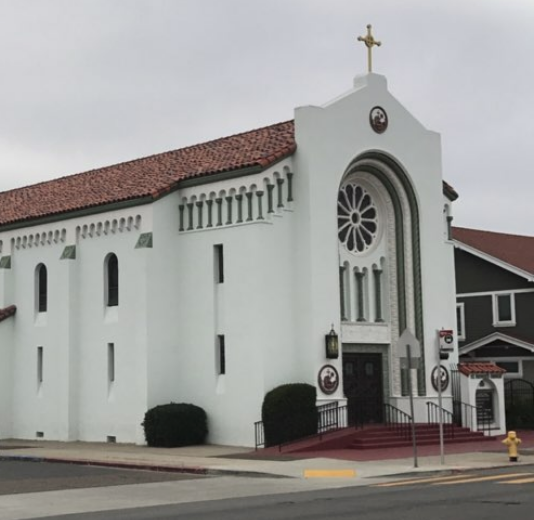Sunday, June 27, 2010
Tuesday, June 22, 2010
Tidal Wave
Tidal Wave from simplechurch.com on Vimeo.
Tidal Wave gives an insider's view of the worldwide phenomenon known as simple church. From living rooms to coffee shops, offices to parking lots, under trees in Africa and underground in China
Why I don’t Go to Church
May 28, 2010
Editors Note: This article originally ran in June of 2005. We are repeating now to give you a taste of Wayne Jacobsen – our main speaker for the 2010 House Church Conference . The conference will be held in Dallas Texas over the Labor Day weekend. Early-bird registration ends June 9th.
I know the way I relate to the church is a bit unconventional, and some even call it dangerous. Believe me, I understand that concern because I used to think that way myself, and I even taught others to think that way as well.
If you are happy with the status quo of organized religion today, you may not like what you read here. My purpose is not to convince you to see this incredible church the same way I do, but to answer your questions as openly and honestly as I can. Even if we don’t end up agreeing, hopefully you will understand that our differences need not estrange us as fellow members of Christ’s body.
Where do you go to church?
I have never liked this question, even when I was able to answer it with a specific organization. I know what it means culturally, but it is based on a false premise – that church is something you can go to as in a specific event, location or organized group. I think Jesus looks at the church quite differently. He didn’t talk about it as a place to go to, but as a way of living in relationship to Him and to others in His family.
Asking me where I go to church is like asking me where I go to Jacobsen. How do I answer that? I am a Jacobsen, and where I go a Jacobsen is. “Church” is that kind of word. It describes a people and how they relate to each other. If we lose sight of that, our understanding of the church will be distorted, and we’ll miss out on much of its joy.
Are you just trying to avoid the question?
I know it may only sound like quibbling over words, but words are important. When we only ascribe the term “church” to weekend gatherings or institutions that have organized themselves as “churches,” we miss out on what it means to live as Christ’s body. It will give us a false sense of security to think that by attending a meeting once a week we are participating in God’s church. Conversely, I hear people talk about “leaving the church” when they stop attending a specific congregation.
But if the church is something we are, not some place we go, how can we leave it unless we abandon Christ Himself? If I think only of a specific congregation as my part of the church, haven’t I separated myself from a host of other brothers and sisters that do not attend the same one I do?
The idea that those who gather on Sunday mornings to watch a praise concert and listen to a teaching are part of the church, and those who do not are not, would be foreign to Jesus. The issue is not where we are at a given time during the weekend, but how we are living in Him and with other believers all week long.
But don’t we need regular fellowship?
I wouldn’t say we need it. If we were in a place where we couldn’t find other believers, Jesus certainly would be able to take care of us. Thus, I’d phrase that a bit differently: Will people who are growing to know the Living God also desire real and meaningful connections with other believers? Absolutely! The call to the Kingdom is not a call to isolation. Every person I’ve ever met who is thriving in the life of Jesus has a desire to share authentic fellowship with other believers. They realize that whatever they know of God’s life is just in part, and the fullest revelation of Him is in the church.
But sometimes that kind of fellowship is not easy to find. Periodically on this journey we may go through times when we can’t seem to find any other believers who share our hunger. That’s especially true for those who find that conforming to the expectations of the religious institutions around them diminishes their relationship with Jesus. They may find themselves excluded by believers with whom they’ve shared close friendship. But no one going through that looks on that time as a treat. It is incredibly painful and they will look for other hungry believers to share the journey with.
My favorite expression of body life is where a local group of people chooses to walk together for a bit of the journey by cultivating close friendships and learning how to listen to God together.
Should we be committed to a fellowship?
That has been said so often today that most of us assume it is in the Bible somewhere. I haven’t found it yet. Many of us have been led to believe that we can’t possibly survive without the “covering of the body” and will either fall into error or backslide into sin. But doesn’t that happen inside our local congregations as well?
I know many people who live outside those structures and fi nd not only an ever-deepening relationship with God, but also connections with other believers that run far deeper than those they found in the institution. I haven’t lost any of my passion for Jesus or my affection for His church – if anything, they’ve have grown stronger by leaps and bounds in recent years.
Scripture does encourage us to be devoted to one another, not committed to an institution. Jesus indicated that whenever two or three people get together focused on Him, they would experience the vitality of church life.
Is it helpful to regularly participate in a local expression of that reality? Of course. But we make a huge mistake when we assume that fellowship takes place just because we attend the same event together, even regularly, or because we belong to the same organization. Fellowship happens where people share the journey of knowing Jesus together. It consists of open, honest sharing, genuine concern about each other’s spiritual well-being and encouragement for people to follow Jesus however He leads them.
Don’t our institutions keep us from error?
I’m sorry to burst your bubble here, but every major heresy that has inflicted God’s people for the last 2,000 years has come from organized groups with “leaders” who thought they knew God’s mind better than anyone around them. Conversely, virtually every move of God among people hungering for Him was rejected by the “church” of that day, and the people that were part of that move were excluded, excommunicated or executed for following God.
If that is where you hope to find security, I’m afraid it is sorely misplaced. Jesus didn’t tell us that “going to church” would keep us safe, but that trusting Him would. He gave us an anointing of the Spirit so that we would know the difference between truth and error. That anointing is cultivated as we learn His ways in His Word and grow closer to His heart. It will help you to recognize when expressions of church you share life with become destructive to His work in you.
So are traditional congregations wrong?
Absolutely not! I have found many of them with people who love God and are seeking to grow in His ways. I visit a couple dozen different congregations a year that I find are far more centered on relationship than religion. In these congregations, Jesus is at the center of their life together. Those who act as leaders are true servants and not playing politics of leadership, and all are encouraged to minister to one another.
I pray that even more of them are renewed in a passion for Jesus, a genuine concern for each other and a willingness to serve the world with God’s love. But I think we’d have to admit that these are rare in our communities; many only last for a short span before they unwittingly look to institutional answers for the needs of the body instead of remaining dependent on Jesus. When that happens, do not feel condemned if God leads you not to go along with them.
To read the rest of this article, go to www.lifestream.org/LSBL.May01.html
Wayne Jacobsen was a pastor for 20 years and currently acts as a Contributing Editor to Christianity Today’s Leadership Journal.
Monday, June 21, 2010
Rep. Kasich: A Portrait of Faith, Friendship
By Mark Martin
CBN News Reporter
Monday, June 21, 2010
John Kasich, a former nine-term Ohio
As chairman of the House Budget Committee in the 1990s, Kasich worked to develop the plan that balanced the federal budget and gave America
In his latest book, Every Other Monday: Twenty Years of Life, Lunch, Faith and Friendship, Kasich shared a much different side of his life: his heart and faith.
The book draws from Kasich's candid discussions with men he calls his "Bible guys."
"In 1987 my parents were killed by a drunk driver. And I had to make up my mind whether I really thought God was out there. And if God is out there can I connect with him?" Kasich told Fox News' Sean Hannity in a recent interview.
"And at the same time, I got seven or eight of my buddies and said, 'Look, you go on a parallel path and I'll join you,'" he said.
Together, they have asked life's toughest questions and shared experiences in a Bible study for more than 20 years.
Former Rep. John Kasich will talk more about his new book and faith journey on the June 21 edition of The 700 Club. Click play to watch the interview.
Thursday, June 17, 2010
Tullian Tchividjian: Surprised by Grace
Monday, June 7, 2010
The letter kills, but the Spirit gives life. (2 Corinthians 3:6)
If you want to know the mind of the Spirit about anything, you will know it by quickening, by Life in that direction. If you want to know what the Spirit is against, you will know it because there is death in that direction in your spirit, you have no Life, you say, in that direction. All right, that means you know the Lord, you know the Spirit, you know what it is to move on the basis of the law of the Spirit of Life in Christ. The Father governed Him by that law. He governs us by exactly the same law when we are joined to the Lord, one spirit. Guidance, direction, is a matter of Life in the Spirit, Life by the Spirit. The Lord Jesus had His life ordered, governed, conducted, arranged in every detail by the quickening Spirit; the Spirit of Life in Christ.
This it is, again, that provides the contrast. These Jews came along and said: Here is the Scripture, and the Scripture says, You ought not to do certain things, and You are doing them; You are all wrong because the Scripture says this! When Christ so acted was He violating the Scripture? Or was He giving God's meaning to the Scripture? When God gave that law, did He not have a fuller meaning than what men see just on the surface? Was there not a spiritual interpretation? Was it not pointing on to something, which when it came was to supersede - I do not mean break but transcend - simply because higher, fuller, deeper meaning was reached? Christ is God's Sabbath. It is in Christ that God comes to rest in all His works; His new creation. But they said, You must abide by the letter! We put it in that way to show the difference between taking the letter and having the Holy Spirit's illumination of the letter. Life and the letter are often contrasted in the Word. The letter killeth, the Spirit maketh alive.
by T. Austin-Sparks
DON'T SLACK OFF
“The disciple who abides in Jesus is the will of God, and his apparently free choices are God's fore-ordained decrees. Mysterious? Logically contradictory and absurd? Yes, but a glorious truth to a saint.”
Taken from My Utmost for His Highest by Oswald Chambers, June 7th
Subscribe to:
Posts (Atom)















